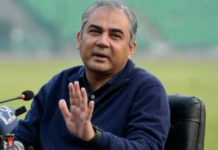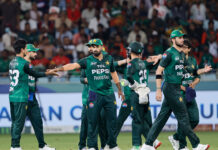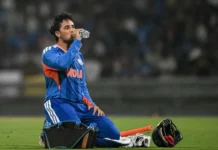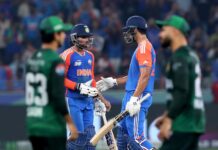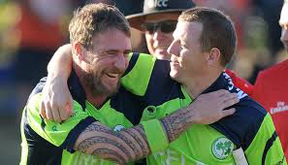 PERTH: The Indian cricket team’s 2014-15 tour of Australia is the last time when it would have played both the Tests and tri-nation ODI series together as it will be split into two separate tours from now on, said Cricket Australia’s Chief Executive James Sutherland.
PERTH: The Indian cricket team’s 2014-15 tour of Australia is the last time when it would have played both the Tests and tri-nation ODI series together as it will be split into two separate tours from now on, said Cricket Australia’s Chief Executive James Sutherland.
It is understood that BCCI and Cricket Australia have reached an agreement wherein the future Indian teams will either come for a tri-nation ODI series or a full-fledged Test series after the current side’s stay here has been stretched to four months including the ongoing World Cup period.
This has been possible as bilateral cricketing ties are now independent of the Future Tours Program after changes in ICC governance model.
In fact, Australian cricket teams have already made separate Tests and ODI tours to India over the past few years but the Indian teams since 1991-92, have always played both Tests and ODIs together, making it cumbersome and physically taxing for the cricketers.
“This year, we had the Tests and the ODI tri-series together because of the World Cup. So what we have decided that future tours may be split. We have seen fantastic crowds for India games all through the summer and we plan to play more regularly. The Australian cricket team will defend their Border-Gavaskar Trophy in India, in early 2016,” CA’s long-time Chief Executive Sutherland told PTI during an interaction.
Sutherland said CA chairman Wally Edwards have had some discussions with the BCCI on the controversial Decision Review System (DRS) but there hasn’t been much of a headway.
“From time to time, we have had discussions with the BCCI and the talks have been more at the Chairman (CA)-President (BCCI) level on this subject. The DRS is an issue that has been discussed for a long time now,” the 49-year-old former Victoria medium pacer said.
He didn’t hide the fact that he is a supporter of DRS.
“Certainly I am a proponent of DRS. We all understand that it is not 100 per cent foolproof but we also understand that we are getting into a position, where we are getting more decisions correct than wrong which I believe is good for the game,” Sutherland opined. . While the ICC’s executive board is now dominated by BCCI, CA and the ECB, Sutherland feels that with greater powers come bigger responsibilities.
“I see this (alliance) as a case of responsibility in broader sense. We will now have to play a role in improving the standard of the game across the globe. We also have a domestic responsibility within our respective sovereign regions (Asian market for India, Oceania for Australia) to grow the game. We have to play a significant role in the growth of the game across our regions,” Sutherland explained the broader purpose.
He said the Indo-Australia cricketing ties are very strong and deep rooted.
“As far as the India and Australia (cricketing) relationship is concerned, not much has changed. Much of it operates very much on a bilateral basis. We have had a good strong working relationship with the BCCI and I don’t see anything really changing from that perspective.
“Obviously, different governance models play a role but we expect positive things to happen in ICC after the change of guard in June,” Sutherland added.
The strategic review committee of the ICC is also contemplating spreading the game beyond full members.
“It’s the endeavor of Cricket Australia and its chairman Wally Edwards to look at ways to improve standard of cricket around the world for full members as well as ICC Associate Nations.
“There is sharp focus on the developing markets. There are few sports which have really grown better than cricket in last 30-40 years. We need to have more focus on alternative markets beyond full members,” Sutherland signed off.–PTI

